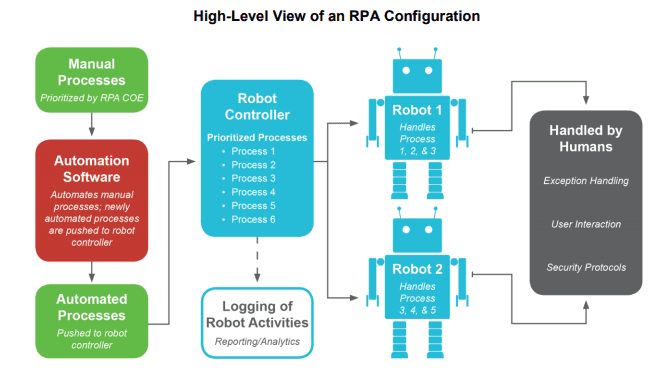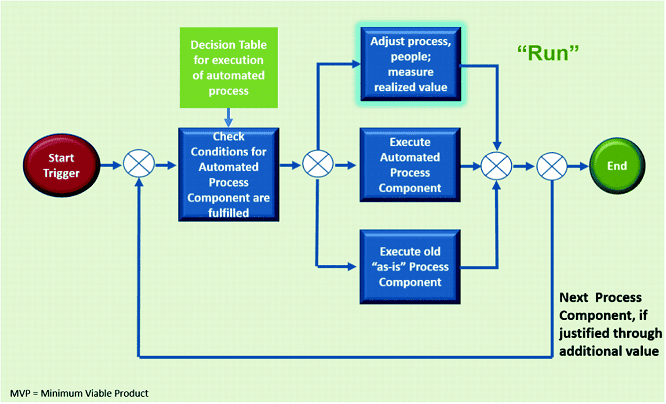Although RPA tools make significant strides, automating routine tasks and allowing humans to focus on more sophisticated ones, yet, they can’t adjust their procedures to self-execution without human help. On the other hand, there are natural language processing tools, with all their power to finally automate routine tasks.
Working in unison with RPA, artificial intelligence solutions “rethink” the ways companies perform business processes, driving more efficient operations. “Intelligent automation” as it is called.
Further, we will dig deeper into that topic, breaking down several examples of how artificial intelligence can be implemented in RPA.
AI for Smarter Process Automation: Breaking Down Use Cases
Autonomous Screening of Documents
Consistent organization of piles of documents turns out to be a time-consuming process for companies, raising the need for a dedicated workforce. Yet, with the automated classification of these, they can get less time and fund investments and better accuracy of operations.
How to achieve these? In a nutshell, there are intelligent image processing tools that “read” document images and recognize particular patterns through self-learning algorithms. Based on these patterns, the system can classify images by predefined criteria.
Besides patterns and symbols, automated document management tools can recognize when the new document arrives. For example, they can recognize the name of a supplier in a new invoice and then trigger the appropriate action in accounts payable.
Automated Content Extraction
Legal documents, such as contracts and agreements, are mostly unstructured. Thanks to AI-powered RPA tools, law firms, and other corporate entities can benefit from automated capturing of complex data, like agreement terms, parties, and other assets. With that, the analysis of legal documents and finding a connection between data pieces could become significantly faster.
For example, such tools can instantly “extract” content from document attachments that arrive with the inbox and insert those data into the ERP, thus saving staff from manual headaches. Better, the dedicated software parses individual fragments of data and then transfers those into corporate systems.
Instant Insurance Claims
Currently, claim processing in traditional insurance takes time and effort that can be spent on more complex issues. AI-based RPA solutions can automate most of these procedures by routing parsed data into CRM. Thus, companies are increasingly addressing AI software providers to develop a project from scratch or get expert consulting services.
In the case of printed documents, such software can scan these and digitize data for further upload into your corporate database. Indeed, hours of manual work will be lost due to that!

Lowered Loan Expenses
Mortgage Bankers Association reports $7,525 of the average loan acquisition cost (as of Q4 2019) per customer. Considerably high, and banks strive to cut these costs.
With the right automation tools, banks can achieve that by cross-selling mortgages to customers. An AI-enabled RPA platform with access to a vast business data can notify bankers about customers’ purchasing behavior. Also, they can provide recommendations on which loan products to cross-sell based on the information in customer profiles.
Automated Churn Forecasts
Today, companies with paid products or services are likely to offer these under a subscription model. Yet, unexpected customer churns may disrupt the whole process of gaining recurring profits and bring significant fund losses in the result.
Intelligent automation tools can analyze customer behavior and detect risk factors leading to churn. Also, they can give recommendations on how to retain customers that are potentially going to churn.
Faster Tech Support
As the number of people using digital tools and services is growing, eventually, businesses may find themselves in a tough situation, when their support departments are overwhelmed with basic queries taking time to process.
But with intelligent RPA tools, that will not be an issue; by delegating simple tasks to smart personal assistants, companies can automate a significant part of their processes. Again, here, we are talking about a daily routine that could be performed by chatbots, while humans could resolve more complex customer issues.

AI in RPA: Status Quo and Future Perspectives
Ideally, process automation is based on structured data, which in practice may not be structured at all. But thanks to AI-powered optical character recognition algorithms, work with content becomes more organized hence efficient.
Besides that, computer vision technologies are expected to get more widespread usage soon. Current capabilities of machine learning still require multiple training sessions so that the system could “learn” to understand images. Meanwhile, computer vision, voice recognition, and other machine learning tools could help better structure input data, up to individual fragments.
Finally, enterprises should move from simple “if-then” machine algorithms that are no longer helpful in today’s complex operations. Chatbots need to be trained to understand natural language in various contexts and make the most optimal decisions, even with limited knowledge.
As you can see, the potential of the “partnership” between AI and RPA is huge, and for now, it is mostly unrealized. So far, the market has no universal tool combining these two technologies out-of-the-box, but that deficiency may change soon; companies such as IBM Watson perform initiatives in that direction, collaborating with various RPA software providers.
We are standing on the verge of innovation, a significant milestone destined to change the ways we used to conduct business. With intelligent automation tools, we will get that faster than we could expect a while ago.
